Businesses Belonging To Baha'i Citizens Sealed In Northern Iran

Iran's Shiite clerical government has shut down at least 14 businesses associated with Baha'i citizens in Gorgan, Iran, as another instance of persecution.

Iran's Shiite clerical government has shut down at least 14 businesses associated with Baha'i citizens in Gorgan, Iran, as another instance of persecution.
Some sources reported that the sealing of the businesses occurred earlier in the week, purportedly "due to the closure on Baha'i religious holidays." Moreover, there is an ongoing concern that additional Baha'i-owned businesses in the city may also face similar actions.
The officials in Gorgan sealed the businesses "without prior notice" and, notably, have not provided responses to inquiries made by Baha'i citizens who visited the related government department on Saturday to seek clarification on the matter.
The incident sheds light on the consistent challenges faced by Baha'i citizens in Iran. The 1979 constitution of the Islamic Republic recognizes only Islam, Christianity, Judaism, and Zoroastrianism. The Baha'i faith is not officially recognized, and Supreme Leader Ali Khamenei has previously labeled it as a cult. In 2018, he issued a religious fatwa prohibiting contact, including business dealings, with Baha'i followers.
Hundreds of Baha'i community members have been jailed and scores charged with espionage and some have been executed over the years.
Iran is home to an estimated 300,000 Baha'is, and they often report systematic violations of their rights, including harassment, displacement from their homes and businesses, and discrimination in terms of access to government employment and higher education.
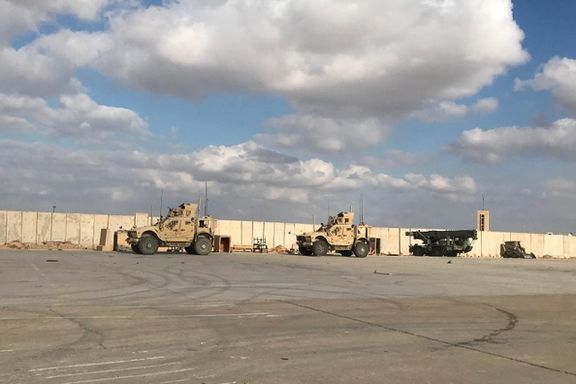
Fars News Agency affiliated with Iran's Revolutionary Guard has reported another attack on the Ain al-Asad airbase in Iraq hosting US troops, by militia forces.
The unconfirmed attack, carried out using a combination of drones and rockets, seemingly targeted American military personnel stationed at the base, as reported by Iran-affiliated Al Mayadeen news network.
Washington and official Iraqi sources have not reported any attack taking place on Saturday.
Simultaneously, another military base housing US forces near Baghdad's international airport also faced rocket attacks, Al Mayadeen added.
Iran-backed Islamic Resistance of Iraq has claimed responsibility for the attack, according to Fars, emphasizing that it was executed with “precision, hitting its intended targets.”
There were already attacks in recent days against US bases in both Iraq and Syria.
The alleged attack follows earlier warnings from Iraqi militants aligned with Iran against potential US intervention in support of Israel during the conflict with Hamas in Gaza. In the past 48 hours, this marks the fifth attack on Iraqi military bases hosting US forces.
The United States maintains approximately 2,500 troops in Iraq and an additional 900 in Syria. The troops are primarily engaged in advising and assisting local forces in the fight against the Islamic State, which seized significant territory in both countries in 2014.
Ain al-Asad airbase, the target of the attack, is situated in the western Anbar province of Iraq.
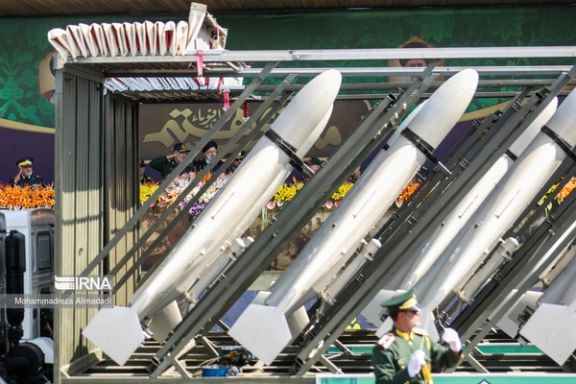
The UN has sent letters to countries announcing end of bans on Iran’s missile program, removing barriers for the clerical regime to sell dangerous technologies.
“The Secretariat removed on 19 October 2023 from the Security Council website the list of 23 individuals and 61 entities subject to the aforementioned restrictive measures,” read the UN letter, terminating all provisions of Annex B of UN Security Council Resolution 2231 that prohibited activities such as development, tests, military employment, and others. The resolution endorsed Iran’s 2015 nuclear deal (JCPOA) with P5+1 (the five permanent members of the Council -- China, France, Russia, United Kingdom, United States, plus Germany).
“All it takes is one letter” to the UN Security Council by parties of the JCPOA to keep checks and balances on Iran’s drones and missiles, Behnam Ben Taleblu, a senior fellow at US-based think-tank the Foundation for Defense of Democracies (FDD) tells Iran International.
The hypothetical letter would start a 30-day clock for a different party to put forward a resolution to prove Iran’s compliance with the defunct deal signed with P5+1 (the five permanent members of the Council -- China, France, Russia, United Kingdom, United States, plus Germany). If the evidence for Iran’s non-compliance is clear, a snapback mechanism would crumble the foundations of UNSCR 2231 resolution, practically end the JCPOA and restore six resolutions imposed on Iran from 2006 to 2010 as well as all their prohibitions and penalties.
The US and nearly 50 other countries dusted off a 20-year-old program on weapons of mass destruction as well as issuing further missiles-related sanctions on Iran and the three European parties of the JCPOA, the so-called E3, announced in September that they would keep their sanctions in place. But no letter for a snapback.
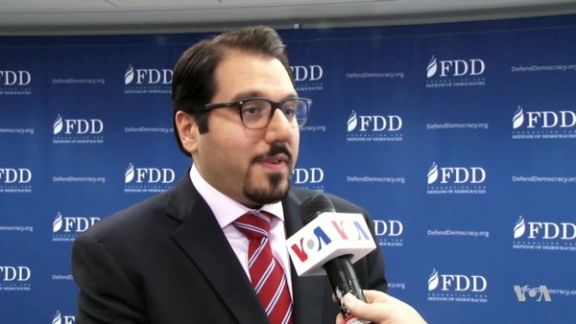
Taleblu says unless Iran starts stockpiling weapons-grade uranium, these countries will not pursue a snapback mechanism. “Despite the recently lapsed UN prohibitions on Iranian missile testing and transfers, snapback still remains an option and should be considered an option. Legally under UN Security Council resolution 2231, snapback will remain an option until the fall of 2025. That means that the US or the E3 can still snap back and restore older multilateral penalties on Iran’s nuclear, missile and military program. And yes, all it takes is a letter from one of these JCPOA participants to the president of the UN Secretary Council and to run a 30-day clock,” Taleblu added.
On the Termination Day of the JCPOA, which will occur 10 years after Adoption Day (i.e. in 2025), the remaining EU measures will be terminated, the UNSC will conclude consideration of the Iran nuclear issue and UNSC resolution 2231 (2015) will be terminated.
Now that the prohibitions are lifted, Iran can now make money legally from its missile and drone sales and then can use the profits to finance its militant and terror proxies in the Middle East. The more chaos and destruction across Eurasia and perhaps Africa, the more Iran can find markets for its products. It can look for new buyers, who no longer face international consequences for their arms trade with Iran.
According to Taleblu, one of the more imminent perils is Iran selling ballistic missiles and related long-range strike technologies to Russia. Tehran has been providing President Vladimir Putin with a platter of miscellaneous drones, but not ballistic missiles. Russia has grown close to Iran since invading Ukraine in February 2022 and would likely use the easier flow of missiles to facilitate its invasion. Many of the hundreds of one-way attack drones it has used to bomb Ukraine in the last year were Iranian made.
“It is absolutely true that Iran did violate even arms transfer prohibitions prior to them expiring in 2020, however, thus far Iran has not given ballistic missiles to Russia,” he said, arguing that Iran waited for these US measures to end so that it can trade its missiles in broad daylight.“It is my contention that Iran was waiting for these international prohibitions to lapse to more seriously consider supplying Russia with ballistic missiles. Iran wants some of its arms transfers to not be penalized by the West and considered legal,” Taleblu said.
In addition to Russia, Iran will try to sell its missiles and drones to all its anti-West allies. Taleblu believes Iran’s leftist allies in the Americas as well as new Asian markets may be the prospective destinations of Iran’s drones and missiles.
In terms of customers for Iran’s long-range missiles or drones, “Venezuela is a growing industry.” He added that Bolivia is also a potential buyer while Belarus also offers a possible niche market. “The most acute and the most dangerous” remains the sale of Iran’s close-range ballistic missiles to Russia to help the invasion of Ukraine. “That will be a game changer and a record breaker for the history of Iranian arms proliferation as well as a game changer in the Russo-Iranian relationship.”
“The Islamic republic is an ideological actor committed to the export of the revolution, committed to keep developing a nuclear weapon, committed to protecting and defending its proxies and partners through illicit arms exports. This is a fact. Legal, political, normative and international prohibitions can hinder or name and shame it, but there is no such thing as a magic bullet.”
“Snapback matters because it sets a multilateral and international legal baseline for pressure against Iran.”
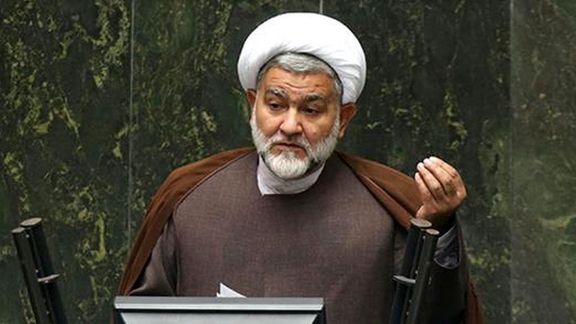
An hardline Iranian lawmaker has threatened that if the Hamas-Israel conflict worsens Tehran might enter the war and close the Strait of Hormuz in the Persian Gulf.
Media in Tehran reported that Hassan Norouzi, an influential lawmaker, was asked how Iran is planning to play a role in the war. He was quoted as responding that “So far, resistance forces in Palestine, Syria and Iraq are sufficient, but if the situation becomes critical and we are asked [for assistance], it is possible that we would go to war against Israel to support the resistance.”
Iran refers to Palestinian and other militant groups in the region that receive support from Tehran and act on its behalf, as the “Axis of resistance.”
Asked about what Iran would do if the United States entered the conflict, he replied, "The United States does not have the audacity to enter directly. If it does, it will face difficult conditions. Even if it attacks, the Middle East and Western Asia's resistance forces have the capability to counter. It's also not unlikely that we could close the Strait of Hormuz. If America directly aids Israel in a war, we will close the Strait of Hormuz."
Iran foreign Minister Hossein Amir-Abdollahian who was visiting Lebanon last week threatened a wider war if attacks continued against Hamas. "The continuation of war crimes against Palestine and Gaza will receive a response from the rest of the axis. And naturally, the Zionist entity and its supporters will be responsible for the consequences,” he stated.
The Iranian regime so far has celebrated Hams’ October 7 brutal attack on Israel that resulted in the killing of about 1,400 people, but has taken no direct military action to support Hamas.

A French-Iranian researcher, who recently returned to France after being held hostage in Iran, has expressed her deep appreciation for the Women, Life, Freedom movement.
Fariba Adelkhah said the movement, which sparked months of nationwide anti-regime protests, brought her “great joy during her time in the Iranian jail.”
Adelkhah made the statement during a visit to her workplace, the Paris Institute of Political Studies on Friday. Her return was met with warm welcome and encouragement from professors and students alike.
The renowned institute, often referred to as Sciences Po, announced on Wednesday that Adelkhah, who endured more than three and a half years of imprisonment in Iran, had returned to France.
Reflecting on the nationwide protests that erupted in Iran after the tragic death of Mahsa Amini, Adelkhah remarked, "We were very happy about what was happening outside."
The seasoned researcher praised the new generation in Iran, emphasizing that they have "nothing to lose" and are "much braver" than their predecessors.
Adelkhah was detained during her visit to Iran in June 2019 and subsequently sentenced to five years in prison, accused of espionage. She was released from Evin Prison in February and was recently allowed to leave the country.
She also disclosed that she spent "entire nights" writing during her imprisonment and interrogations to communicate to her captors that she was not the "spy" they perceived her to be.
Over the past decade, Iran's Revolutionary Guard has detained numerous dual nationals and foreign individuals, often on unsubstantiated allegations of espionage and security breaches. Human rights organizations have characterized the detentions as hostage-taking maneuvers designed to extract concessions from Western governments.

Toomaj Salehi, a jailed Iranian rapper, has been awarded the 2023 Arts Freedom of Expression Award by Index on Censorship, an organization promoting free expression.
The 33-year-old metalworker from Esfahan, known by his stage name Toomaj, is currently serving a six-year and three-month sentence in Dastgerd Prison in Esfahan Province on charges of "corruption on earth" and "waging war against God." The award will be accepted on his behalf by his London-based cousin, Azadeh Babadi, who operates an account representing Toomaj.
The award is great support for all the people for whom Toomaj has fought, Babadi said in a video message posted on X by Index on Censorship. “Toomaj is still detained so it is our turn now to take the responsibility and do everything in our power to be his voice and push the regime to set him free,” she added.
Index on Censorship presents annual awards to individuals worldwide who have made significant contributions to free expression in the preceding year. Past sponsors of the award include The Guardian, Google, SAGE Publications, and the London law firm Doughty Street Chambers.
Toomaj was violently arrested by the intelligence ministry in Esfahan province during the height of the Woman, Life, Freedom protests on October 30, 2022, for his artistic activities in favor of the anti-government movement. He was reportedly subjected to severe torture while in custody and forced to make televised “confessions” that incriminated him.
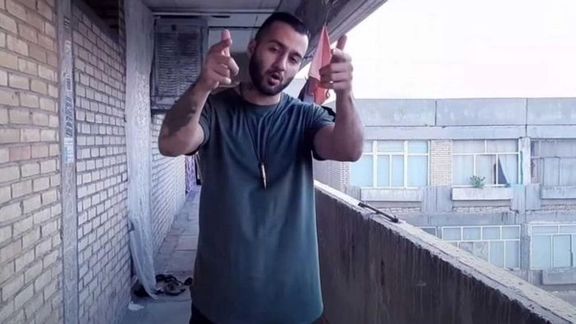
Toomaj used his social media influence to encourage protesters not to give up the streets and join strikes to topple the regime, although he had already been arrested once before. He also provided guidance on bypassing internet censorship. Throughout his career, he was never allowed to release his music in Iran or hold live concerts, connecting with his fans solely through online platforms like YouTube.
In one defiant tweet following his arrest, Official Toomaj quoted one of his songs: "We will come to the streets, every day and night, until Iran is freed. The streets are ours; we will take them back from you."
This was the second time Toomaj, a highly popular underground rapper, was arrested for his politically charged songs, such as “Buy a Rat Hole” (2021) in which he vehemently criticized repression, injustice, poverty, and authorities’ corruption and impunity from prosecution. The song harshly condemned the regime and called out its agents and supporters, warning them that retribution for their actions was imminent. "You are a murderer if you cover up murder. To cover up murder you must step in blood,” he sang.
Like many other Iranian musicians, Toomaj was never able to release his songs or perform them publicly due to an unofficial. Iranian musicians, regardless of their genre, must obtain permits to release their music or hold concerts. The permit issuance often depends on the content of the lyrics and the artist's overall activities rather than the genre itself. Rap and rock music are generally frowned upon as Western influences and are not considered suitable for the Iranian public. Furthermore, recording and releasing music categorized as "degenerate Western culture" and "vulgar" on the internet is deemed illegal by the authorities.
The Iranian regime has also targeted other artists and singers whose work has been critical of the regime and explicitly addressed either political or social themes, including rappers Saman Yasin, who was charged with mohrabeh, or “enmity against God,” in November last year and Mehdi Yarrahi, who was arrested on August 28 for a song named Your Veil in support of the opposition to the mandatory veiling rules.
For the past four decades, religious authorities in Iran have prohibited musical instruments from being showcased on state television, though they reluctantly allowed music broadcasts. Female singers are completely banned from publishing their work, and concerts are permitted only for all-female audiences or when female artists perform in choirs.